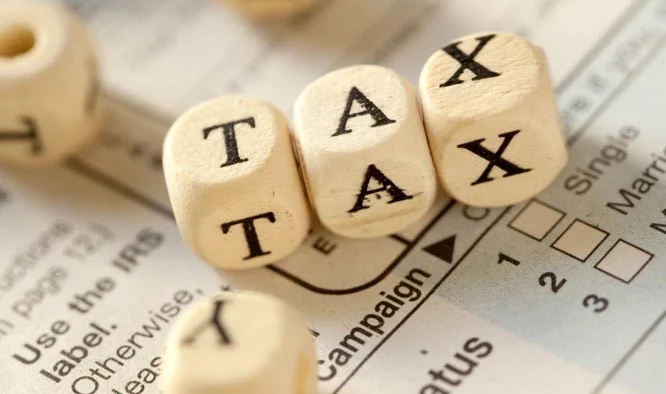In an effort to enhance the tax base and improve the efficiency of tax collection, the government is considering withdrawing the powers of the National Database and Registration Authority (NADRA) related to determining the income and tax liability of unregistered persons and non-filers. This proposal, which is being discussed for incorporation in the Finance Bill 2023, aims to address the shortcomings of NADRA’s previous attempts to expand the tax net.
Background of the National Database and Registration Authority (NADRA)
NADRA, established as an independent authority in 2000, is responsible for maintaining a centralized database of Pakistani citizens and issuing Computerized National Identity Cards (CNICs). Over the years, NADRA has played a crucial role in various government initiatives, including electoral processes, identification verification, and social welfare programs.
The need for broadening the tax base
Broadening the tax base is a crucial objective for any government seeking to generate sufficient revenue for public expenditures and reduce the burden on existing taxpayers. It involves bringing unregistered individuals and non-filers into the tax net, ensuring a fair distribution of the tax burden, and reducing the reliance on a small taxpayer base.
Challenges and limitations of NADRA in expanding the tax net
Despite its extensive database and access to individual information, NADRA has faced challenges in effectively expanding the tax net. The experience of using NADRA’s powers under section 175B of the Income Tax Ordinance to assess and recover income tax from non-filers have not yielded the desired results. The limitations of NADRA’s approach have become evident, prompting the need for alternative strategies.
Proposal to withdraw powers of NADRA
Senior officials in the Ministry of Finance are contemplating removing all powers available to NADRA under section 175B of the Income Tax Ordinance. This step would eliminate NADRA’s authority to take action against non-filers of income tax returns. The Federal Board of Revenue (FBR) would need to propose the abolition of section 175B through the Finance Bill 2023 to implement this change.
The impact of the proposed change
The withdrawal of NADRA’s tax assessment powers would mark a significant shift in the government’s approach to expanding the tax net. The decision reflects a recognition of the limitations of NADRA’s previous efforts and the need for a more effective strategy. By redirecting responsibilities and introducing new provisions, the government aims to create a system that leverages technology and data analysis to encourage tax compliance.
Introduction of a Realtime National Integrated database
Following the removal of section 175B, the FBR can introduce a new provision, possibly section 175C, to establish a Realtime National Integrated database. This database could be controlled by the State Bank of Pakistan (SBP) or the FBR, enabling comprehensive analysis of data, including banking transactions. Advanced technologies like artificial intelligence (AI) would be employed to analyze the data based on tax declarations, helping identify non-compliant taxpayers.
AI-driven analysis of banking transactions for tax compliance
The proposed Realtime National Integrated database would utilize AI, mathematical modeling, statistical analysis, and other modern calculation methods to compute the indicative income and tax liability of individuals. By analyzing banking transactions and comparing them with the declared incomes, the system can identify discrepancies and potential cases of tax evasion.
Encouraging non-compliant taxpayers to revise their returns
One of the main objectives of the proposed system is to encourage non-compliant taxpayers to revise their tax returns voluntarily. Once discrepancies are detected, the system would notify non-compliant individuals, nudging them to rectify their returns and comply with tax obligations. This approach aims to foster voluntary compliance and minimize the need for enforcement measures.
Failure to revise income or file correct incomes
If individuals fail to revise their income or file correct income even after being notified by the system, the information would be made available to the FBR for necessary action. The FBR would have the authority to take appropriate measures to enforce tax compliance and ensure that individuals fulfill their tax obligations.
Collaboration between NADRA and the Federal Board of Revenue (FBR)
Although NADRA would no longer possess tax assessment powers, it would continue to play a vital role in the tax ecosystem. NADRA can collaborate with the FBR by submitting proposals and information to broaden the tax base. The exchange and utilization of information between the two entities would be facilitated through a memorandum of understanding, ensuring secure data exchange.
Powers and responsibilities of NADRA under section 175B
Under section 175B of the Income Tax Ordinance, NADRA is authorized to share its records and information with the FBR for the purpose of broadening the tax base. It can identify income, assets, liabilities, expenditures, or transactions that have escaped assessment or have been under-assessed. Furthermore, NADRA can determine the true or market value of assets and enter into a memorandum of understanding with the FBR.
The utilization of information by the FBR
The FBR is empowered to use the information provided by NADRA to fulfill its obligations under the Income Tax Ordinance. The information can be forwarded to the relevant income tax authority for appropriate action.
This collaboration ensures the effective utilization of data and facilitates tax compliance. the government’s plan to withdraw NADRA’s powers for determining the income and tax liability of unregistered persons and non-filers marks a significant shift in the approach to expanding the tax base.
By introducing a Realtime National Integrated database and leveraging AI-driven analysis, the government aims to encourage tax compliance and enhance revenue generation. This strategic reform has the potential to address the limitations of NADRA’s previous efforts and create a more effective and efficient tax system.


